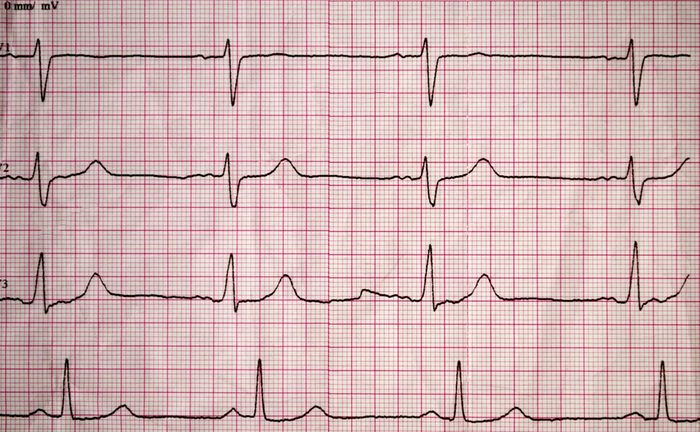
Heart disease
Coronary artery disease and other heart and lung problems often interfere with sleep, says Jeffrey Durmer, MD, chief medical officer of FusionHealth. In fact, up to 44 percent of people with heart disease experience poor sleeping, compared with about 10 percent of the general population, according to the American College of Cardiology. “During the day, fluids naturally swell your legs, then when you lie flat at night, the fluids redistribute,” Dr. Durmer explains. “But if your heart isn’t working well, at night those fluids can get stuck in your heart and lungs. Sitting up can help your body distribute fluid better.”
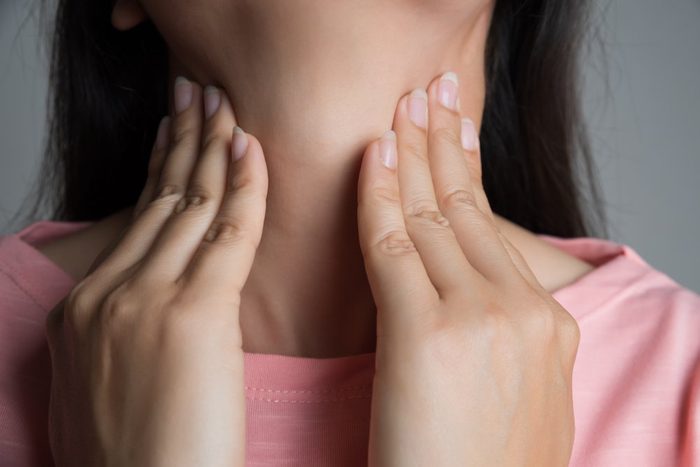
Thyroid problems
An overactive thyroid gland—hyperthyroidism—causes various metabolic functions of the body to speed up, often leaving people feeling jittery and extra-energetic. At night, that extra energy can interfere with your ability to relax and slip off into sleep, according to the National Sleep Foundation.
Although folks with an overactive thyroid may feel jumpy at first, when dealing with the condition over time, the body starts to tire out. Eventually those with hyperthyroid may end up feeling incredibly fatigued. Other symptoms may include hand tremors, muscle weakness, frequent bowel movements, and weight loss. The condition can usually be diagnosed with a simple blood test that measures levels of thyroid hormones. To understand more, these are 13 thyroid facts everyone should know.
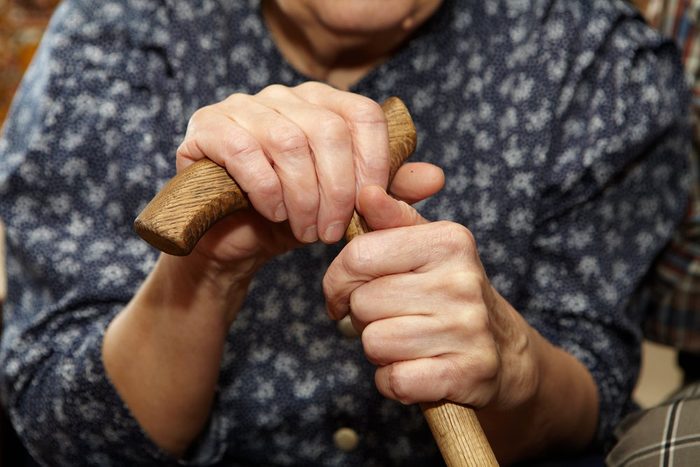
Arthritis
Up to 80 percent of people with arthritis have trouble sleeping, according to the Arthritis Foundation. But it’s not just pain that keeps people from falling asleep; arthritis causes inflammation and anxiety that creates a vicious cycle, explains Daniel Smith, MD, an orthopedic surgeon at Mount Sinai in New York City. “Arthritis isn’t just loss of cartilage, it’s the body’s response to it, and one of the responses is inflammation. Studies show that an increase in inflammation is associated with a lack of sleep. So not only could poor sleep increase inflammation and cause pain, but inflammation can cause a decrease in quality of sleep.”
There are more than 100 different types of arthritis, and signs and symptoms such as joint pain, swelling, stiffness, fatigue, or a rash, can come and go. Diagnosis can be tricky and take a little time, according to the Arthritis Foundation, but a good first step is to talk to your primary care doctor. You may ultimately need an appointment with a rheumatologist or orthopedist for diagnosis and treatment.
Here are 10 more things your sleep habits might be trying to tell you.
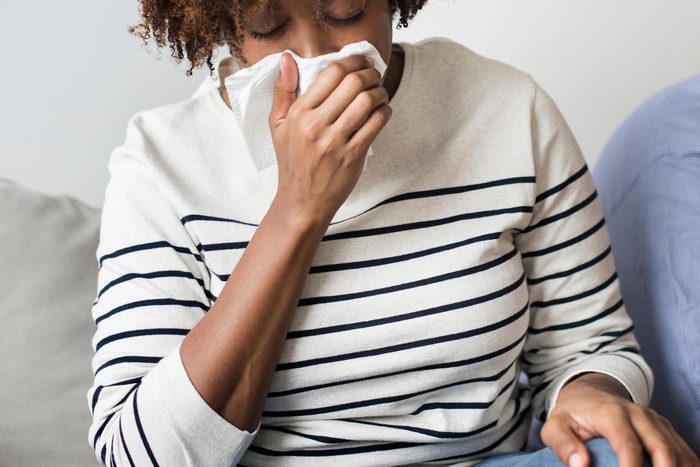
Allergies
Allergens in the air inflame your nasal passages and trigger the production of substances called histamines that cause further stuffiness and post nasal drip. These symptoms are bad enough during the day—but at night, they can severely disrupt your sleep. In one study, more than 40 percent of people with these allergy symptoms reported having trouble falling asleep at night. Luckily, over-the-counter allergy medications can help. Not sure it’s allergies? Other signs you may have allergies include coughing, sneezing, watery eyes, and itchiness in the throat or nasal passages.

Reflux
Gastroesophageal reflux disease, or GERD, is one of the leading causes of sleeplessness for people between the ages of 45 and 64, according to the National Sleep Foundation. In people with GERD, acid from the stomach backs up into the esophagus, causing heartburn and potentially coughing and choking when you lie down. Some other symptoms of GERD can include inflammation of the gums, sore throat, belching, and bad breath. GERD can be diagnosed by a general practitioner or by a gastroenterologist and it can be treated with lifestyle changes and medication. Here’s what sleep doctors want you to know about snoring.
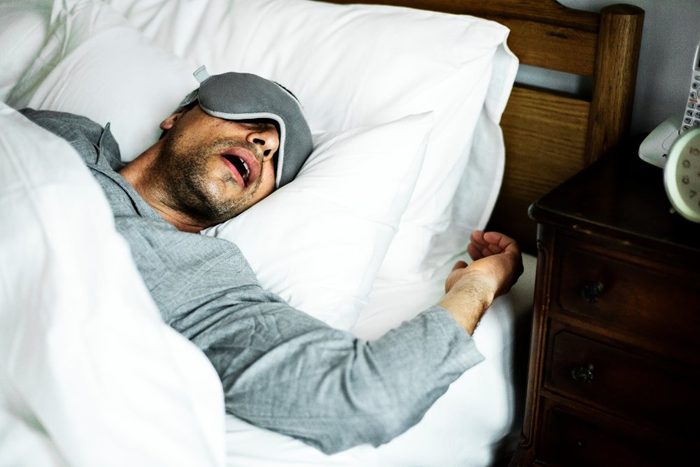
Sleep apnea
Chronic loud snoring, often accompanied by gasping or snorting, is a strong indication of obstructive sleep apnea (OSA), says Michael Breus, PhD, author of Good Night: The Sleep Doctor’s 4-Week Program to Better Sleep and Better Health. As you fall asleep, the muscles in your throat naturally relax. In people with OSA, these muscles relax too much—their airway collapses, forcing them to briefly wake up, catch their breath, and readjust.
Other symptoms of sleep apnea include morning headaches, night sweats, dry mouth, or sore throat upon waking. People with sleep apnea may also have difficulty concentrating during the day. It’s important not to ignore signs of sleep apnea, says Dr. Breus. Not only does OSA lead to fatigue and daytime sleepiness, but it can also cause high blood pressure and raise the risk of abnormal heart rhythms and other types of cardiovascular disease. For a diagnosis, your doctor can prescribe a simple, at-home sleep study or refer you to a sleep specialist.
Here are 12 things that happen to your body when you take melatonin.
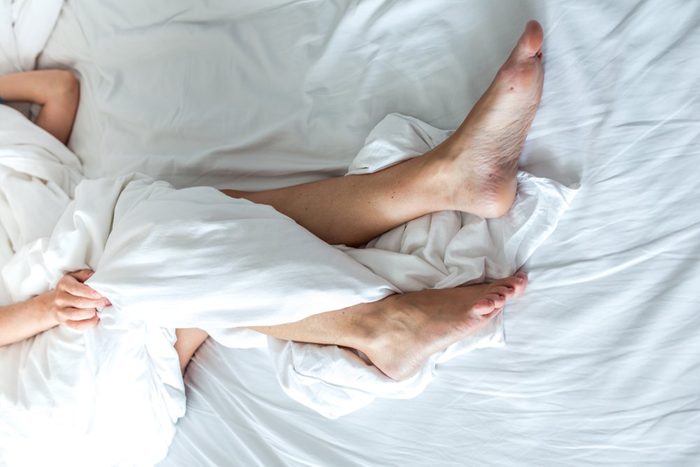
Restless legs
If you get tingly, burning, or achy sensations in your legs at night it could be restless legs syndrome (RLS), according to the National Sleep Foundation. Some patients describe the sensation as a feeling as though something is crawling around—or water is running—deep within the muscle of the legs.
People with RLS have an almost irresistible urge to move their legs to relieve the sensations. The symptoms typically worsen later in the day and when your body is still, which is why it often interferes with falling asleep. A doctor may ask you to keep a sleep and symptom diary or to do a sleep study to confirm diagnosis. Lifestyle changes and medication can help.
Considering a magnesium supplement? You’ll want to know these 3 things first.
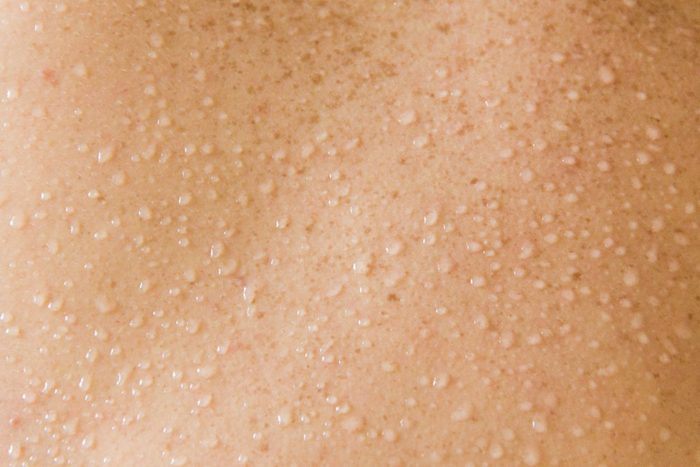
Hormonal fluctuations
While the average age for menopause in women is 50, hormonal fluctuations that can ruin sleep may start years earlier. Production of progesterone, a sleep-promoting hormone, decreases during perimenopausal years, contributing to an inability to fall asleep, explains Joyce Walsleben, RN, PhD, author of A Woman’s Guide to Sleep. A related factor that can interfere with rest is hormone-related hot flashes—surges of adrenaline that wake you up, increase body temperature, and make you sweat.
If symptoms are keeping you up or waking you up regularly, see a gynecologist or your general practitioner, says Walsleben. Other common symptoms of perimenopause include irregular periods and mood swings. It’s just one of the 13 things that could be wrecking your sleep.
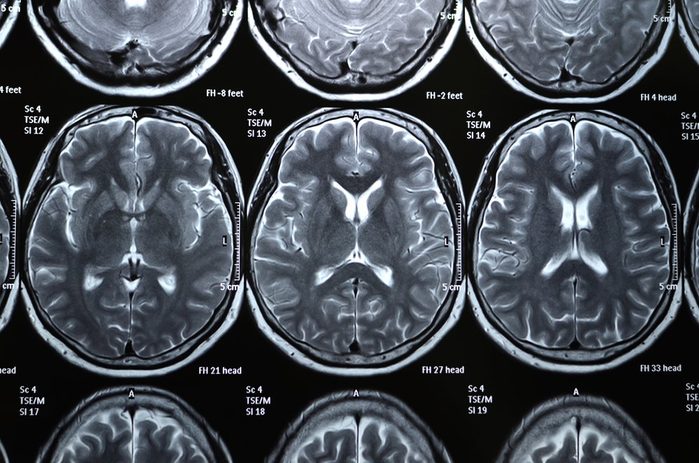
Parkinson’s disease
Neurodegenerative disorders such as dementia, Alzheimer’s, and Parkinson’s disease often cause sleep disturbances. People with Parkinson’s are usually able to drift off to sleep okay, but tend to wake up throughout the night and have difficulty falling back to sleep, according to the UCSF Parkinson’s Disease Clinic and Research Center. They may experience other types of sleep disturbances, too, according to the National Sleep Foundation, such as nightmares, restless legs, and frequent nighttime urination.
Parkinson’s is a disorder of the central nervous system that usually strikes older people, and causes tremors, balance problems, and difficulty talking, walking, or eating.
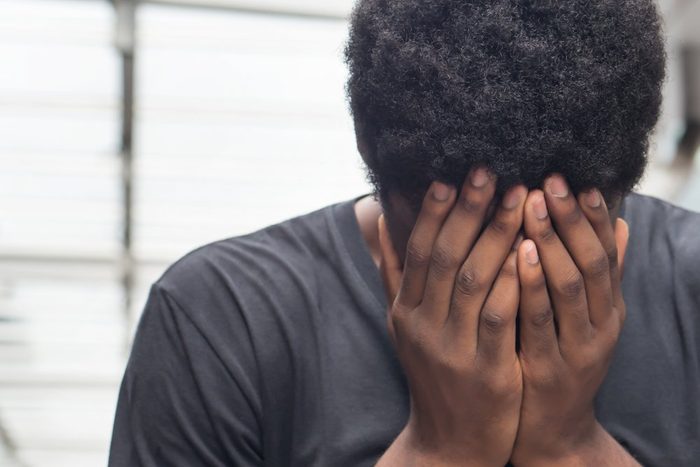
Depression
About three-quarters of people with depression also have insomnia, says Dr. Breus. The relationship between sleep and depression is complex, and probably goes both ways: Not only does a lack of sleep contribute to depression, but changes in the brain in people with depression can also directly interfere with sleep; that’s one reason why getting better rest is such an important part of treatment.
Talk to a doctor if you have symptoms of depression such as loss of interest, lack of motivation, feelings of hopelessness, body aches, or changes in appetite. To learn more, be aware of these additional warning signs of depression.
